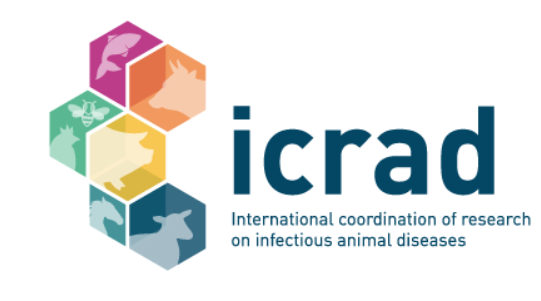 The European Union project “International coordination of research on infectious animal diseases (ICRAD)” is implemented within the ERA.Net mechanism of the European Union Framework programme for research and technology development under Horizon 2020. The overall aim of the project is to strengthen the research coordination in infectious animal diseases, co-funding and the exchange of achieved results.
The European Union project “International coordination of research on infectious animal diseases (ICRAD)” is implemented within the ERA.Net mechanism of the European Union Framework programme for research and technology development under Horizon 2020. The overall aim of the project is to strengthen the research coordination in infectious animal diseases, co-funding and the exchange of achieved results.
According to a recent newsletter, major research gaps in veterinary vaccinology have been identified that could potentially be filled by current and future projects under the auspices of ICRAD, as follows:
- There is a need for advanced standardized technologies as an enabler to be able to detect and measure correlates/surrogates of protection;
- Overarching databases that coordinate knowledge of development, availability, distribution, and exploitation of lab reagents in collaboration with commercial partners will be key;
- Suitable use and access to animal models to assess safety is required, specifically in field settings;
- A key priority for the future is the need to establish and characterize pipeline of ‘plug and play’ platforms of vaccine platform technologies. These need to be efficacious, economically suitable, scalable, rapid to produce and regulated, Data analytics, bioinformatics, and genomic databases will play a key underpinning role in supporting technology platform development;
- Coordinated response and knowledge exchange is needed between academia, regulators, and industry to understand the vaccine development landscape;
- There is a need to support and maintain capacity in veterinary vaccine research across the entire vaccinology research and development career track;
- The Covid-19 pandemic has highlighted the priority of strengthening emergency research capacity, manufacturing, and infrastructure (inc. containment facilities) in veterinary clinical practice for emerging epidemic and epizootic diseases and that capacity is required for large scale vaccine field trials.
However, the fast development of these modern vaccines was only possible due to preceding year-long research efforts to establish the suitable vaccine platform. This strongly supports the perception that appropriate funds for vaccine research remain of utmost importance to control infectious diseases.
In addition, a few words about Calls are to be mentioned. The recent Call was implemented as part of “One Health Approach to Zoonoses Research and Innovation”. Future projects aim to develop the ability to respond rapidly to emerging zoonotic threats and improve animal and human health through pathogen research and the development of zoonotic detection and prevention platforms.
The Joint Call brought together twenty-two funding organizations from eighteen countries to take a One Health approach to Zoonoses Research and Innovation. The Call follows a two-stage submission process, the short pre-proposals will be peer-reviewed after passing an eligibility check. According to the Evaluation Secretariat, 40 applications were successfully submitted, 2 of which were submitted by the Russian research teams. At this stage, the applications are undergoing an international evaluation process. Based on its results pre-proposals will be selected by the funding organizations. The results of the first stage will be announced by email by the end of March 2022.
Consortia successfully passing the pre-proposal phase will be invited to submit a full proposal. The full proposals will be evaluated by a panel of independent experts, using the evaluation criteria published with the Call. Projects are expected to start from April 2023 at the latest, depending on grant negotiations with the relevant regional or national funding organizations.
